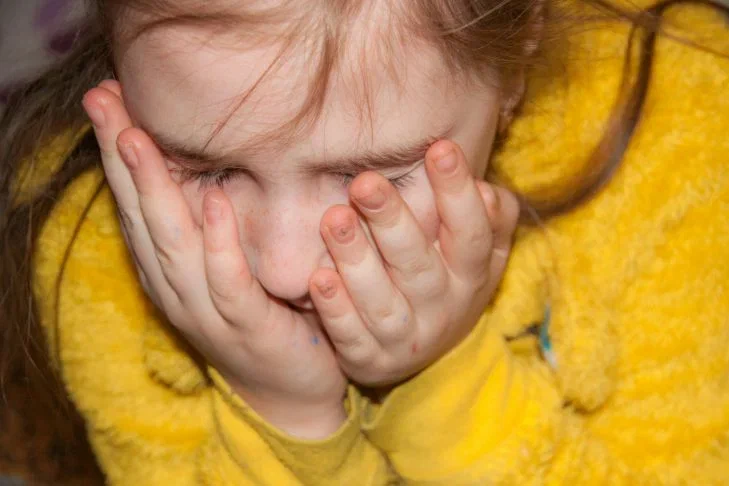Of course, everyone likes a calm and quiet child who is neither seen nor heard. But still, there comes a moment when his rights are violated, even in the most innocent (from the mother's point of view) way. Otherwise, he cannot express protest and indignation except by screaming.
But the elders clearly don’t like this, so they act rather clumsily, making their son or daughter worry even more.
What phrases should be taboo for fathers and mothers?

"Stop crying!"
A child is not a computer that can be put into "sleep mode" by clicking the keys. Besides, if you look at it honestly, how many people calm down after that? Even if you tell an upset adult: "Don't cry!", they are unlikely to stop.
On the contrary, he will cry harder. What can you expect from a child who cannot control his feelings? He is in pain, he feels bad, he is offended, and so he expresses all of this. As best he can, of course.
And the ban on emotions is the first step to becoming a sociopath who has suppressed everything good and bright in himself. Years later, this egoist will answer his elderly relatives to their complaints: "Stop crying!"
"It's your own fault!"
This is a direct counterargument. Whatever happens, we must find the accused. Even if this is true, it is still a very bad time to state this fact. It is better to wait until the little one calms down and then talk calmly.
"Found something to worry about!"
This phrase seems meaningless even in adulthood, not to mention children. You can't disconnect from the world around you and not see other people's actions.
How can you ignore insults, humiliation, the way they push you, the way they provoke conflict?
How can you not notice and not hear offensive words? A person cannot suddenly become deaf, blind, and even stupider for greater probability. And at the moment of acute experience, these words can really anger.
"If you continue like this, I will punish you!"
There is no logic or sense either. Is it possible to punish for crying? And what if we treat all people in the same way? Only if someone gets upset, immediately take out a belt or give a slap.
This will immediately lead to peace in the whole world and to universal happiness. Everyone will walk and smile, because for the slightest manifestation of sadness punishment can fly.
"You know I don't like it when you cry!"
This probably resembles hidden blackmail. That is, a child is loved only for some specific actions? And if he deviates from them, then he automatically becomes unloved? Or what? Besides, when someone is having a hard time, he least of all thinks about how he looks from the outside.
He wants support and warmth, but in return he gets discontent and criticism. It turns out that he is not loved either. And this should immediately calm him down?
"I know better!"
Well, who would doubt it, naturally, the mother is the smartest and most wonderful. Even if she does not see the oppressed state of her own child, she still remains the standard. Let the baby continue to scream, but then he will say "thank you".
Why do moms and dads make such gross mistakes with their children? It is certainly not easy to cope with a little person's hysteria, especially when absolutely nothing foreshadowed trouble.
We must not forget that children perceive everything differently and that what is trivial and not worth attention for an adult is a global catastrophe for a small child.
Every mother knows from experience that no hysteria lasts long, and literally in a few minutes the son or daughter is ready for a dialogue. Or, at least, they simply calm down and become quiet.
Such phrases are a consequence of the upbringing received by the parents themselves. Unfortunately, people do not pass exams before having children, so the characters of some fathers and mothers need urgent intervention of a psychologist, or even a psychiatrist.
Having been deprived in childhood, they involuntarily project themselves onto their children, wanting them to experience the full range of their own negative emotions.
Only this time they are not victims, but tormentors, reveling in their power over the weak. But we must not forget that these children will also grow up and start taking it out on those around them. As a result, evil, instead of being destroyed, flourishes more and more.
Earlier we talked about how to properly give pocket money to a child.
